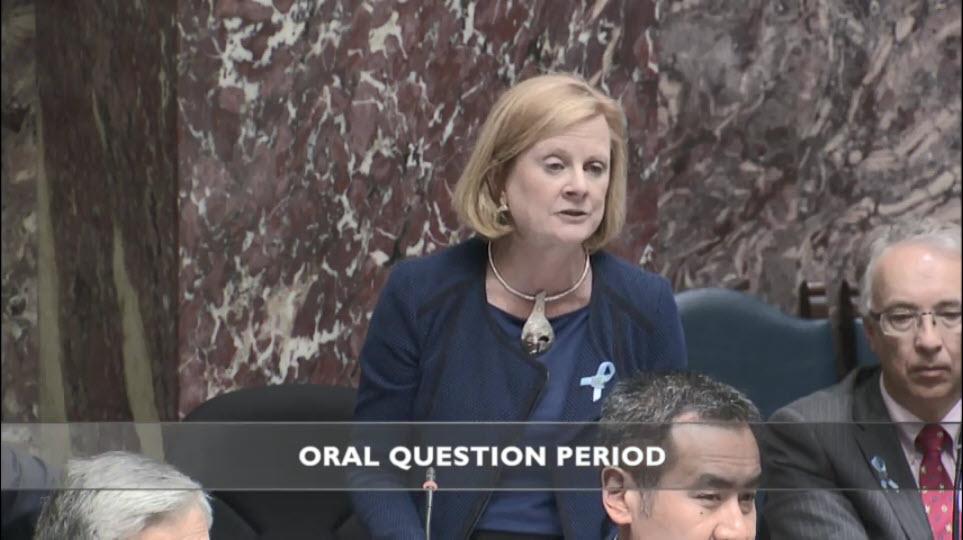Under the Standing Orders, MLAs can only ask questions that are urgent and important, and they must ask or answer questions both briefly and precisely. They cannot use the time to present their own opinions or begin a back and forth argument.
MLAs must direct their questions through the Speaker to the Cabinet minister officially responsible for the matter (e.g., hospitals, roads, or education) and must adhere to certain guidelines.
They must not ask questions about proposed new laws or government funding requests, because these are handled through regular debates. They must not refer to matters currently before a court or waiting to go to court, because judges and juries must remain impartial and a public discussion could influence their decisions.
It is up to the Speaker to make sure that Question Period runs smoothly. The Speaker decides the order in which MLAs will ask their questions and how long a member can take to ask or answer a question. If a question or answer goes on too long, the Speaker will bring the Member to order.
Likewise, the Speaker has the authority to decide if a question is out of order (not related to the activities of government, for example, or containing unparliamentary language) and they may ask to have it rephrased or they might simply move on to the next question. The Speaker also determines if the MLA who asked the question should be allowed to ask a supplementary (follow up) question for further clarification or information. If the Speaker allows a supplementary question, the MLA must pose it right after the Cabinet minister's response, not later in Question Period.
Most times, Cabinet ministers do not know in advance what questions they will be asked during Question Period. When a Cabinet minister is asked a question, they may answer the question, take the question "on notice" (which means answer it at a later date, usually once they have the necessary facts and figures), allow another Cabinet minister or the Premier to answer in their place, or they may choose not to respond to the question at all. Most often, a Cabinet minister will stand and respond to the question at the time it is asked.

